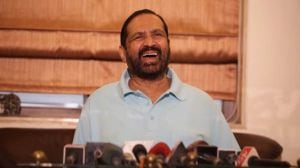Ambani spat highlights India8217;s coalition politics
Ambani brothers, whose businesses make up about 5 per cent of the India's economic output, have taken political centrestage.

India8217;s feuding billionaire Ambani brothers, whose businesses make up about 5 per cent of the Asian giant8217;s economic output, have taken political centrestage and underscored how a new government ally is already generating headlines.
The controversy highlights one problem of coalition politics in India, where political commentators say smaller parties with corporate or social interests can have a disproportionate sway.
After communist parties ended support for the government last week in protest against a nuclear deal with the United States, Prime Minister Manmohan Singh won backing of the regional Samajwadi Party SP to avoid losing a confidence vote and facing snap elections.
The party has close links to Anil Ambani, the head of Reliance Communications and one of the world8217;s richest men, who has been in a long dispute with his even richer and elder brother Mukesh, chairman of Reliance Industries.
The dispute led to the split of the Reliance empire in 2005 into two groups controlled by each of the brothers. Together they represent about a fifth of the Sensex share index and operate in sectors from petrochemicals to mobile networks.
So when Mukesh Ambani met the Prime Minister on Monday, it sparked headlines across India that he was trying to defend his business interests amid fears his brother now enjoyed greater access to the government thanks to his SP links.
The meeting followed SP General Secretary Amar Singh saying his party would push for a windfall tax on private oil refiners, a move that would directly hurt Mukesh8217;s plans to have the world8217;s biggest refinery complex in India.
8216;Corporate Games in PM8217;s Office8217; was the headline of The Mail Today on Tuesday.
8220;A dangerous precedent has been set with the Prime Minister being asked to personally intervene to mediate between the two Ambani brothers,8221; the Communist Party of India Marxist, which is hugely influential in parliament, said.
8220;The two largest political parties are weak and smaller parties can gain influence. The tail can wag the dog,8221; Paranjoy Guha Thakurta, an author on coalition politics in India, said.
Reliance Industries and the Anil Dhirubhai Ambani Group had no comment on any of the reports. A source at the prime minister8217;s office said the meeting was business, not politics.
DISGUSTING
Shares in Reliance Industries lost nearly 6 per cent in two days after the SP officially said it would back the government, with investors nervous about the windfall tax.
The Ambani dispute had already turned more bitter when Anil bid to merge Reliance Communications with South Africa8217;s MTN Group to create a telecoms giant. Mukesh objected, saying his permission was required for sales of family shares.
Then came the tidal change in politics, with Amar Singh and the SP as kingmaker effectively holding the balance of power.
Amar Singh last week told television channels that Mukesh8217;s approach to the MTN deal was 8216;disgusting8217; and called on the prime minister to sort out the conflict.
The politician8217;s stance has raised eyebrows. Any government move against exports of refined oil products, as Amar Singh wants, would hit Mukesh8217;s Reliance Petroleum, which is about to start test runs for a new export-oriented refinery.
Reliance Industries, which controls Reliance Petroleum, runs India8217;s biggest refinery at Jamnagar, adjacent to the new plant, and its refining complex will be the biggest in the world.
8220;It8217;s all looking like a bit of a farce now,8221; said Harit Shah, an analyst at Angel Broking.
8220;It is a bit illogical to think that special benefits that were given years ago can suddenly be abolished or that taxes can suddenly be imposed because someone is demanding it.8221;
8220;But what8217;s clear is that having the heads of two of the biggest conglomerates fight is a bad reflection of India as a good investment destination or a good place to do business in.8221;
V.K. Sharma, head of research at Anagram Stock Broking, said the market was used to factoring in politics.
8220;It gives a very shoddy impression about India,8221; he said. 8220;That means politics still plays a role in doing business here.8221;
- 01
- 02
- 03
- 04
- 05






























